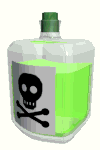Nova pesquisa relaciona o pesticida Dieldrin ao câncer de mama, por Henrique Cortez

Um novo estudo [Developmental and Lactational Exposure to Dieldrin Alters Mammary Tumorigenesis in Her2/neu Transgenic Mice], de Heather L. Cameron e Warren G. Foster, publicado na revista online Plos ONE, conclui que a exposição ao contaminante ambiental dieldrin aumentou o risco tumoral em camundongos geneticamente predispostos.
O câncer da mama é o câncer mais comum nas mulheres ocidentais e diversos estudos indicam que os fatores ambientais podem ter influência no seu desenvolvimento.
O pesticida organoclorado dieldrin é um produto tóxico ambientalmente persistente, que já foi indicado, em diversos estudos, como um fator ambiental a ser considerado no aumento do risco de câncer de mama e na redução da sobrevida na população humana.
No caso brasileiro, o dieldrin é um dos pesticidas envolvidos na contaminação do solo e do lençol freático por agrotóxicos em Paulínia, pela Shell, em 1977. Estima-se que ao menos 6.000 pessoas tenham sido expostas direta ou indiretamente à contaminação entre 1977 e 2002. Muitos alegam ter desenvolvido problemas de saúde –como cânceres– em decorrência desse contato, o que é perfeitamente plausível diante de vários estudos que associam os organoclorados, dentre eles os drins, ao aumento do risco de câncer. [vejam “Justiça obriga Shell e Basf a pagar plano de saúde vitalício para trabalhadores expostos à contaminação por agrotóxicos em Paulínia” e “Vítimas de contaminação no caso Shell começam a ser cadastradas“]
Um destacado artigo a demonstrar a associação de pesticidas e o risco de desenvolvimento de câncer de mama é “Pesticides and Breast Cancer Risk: A Review of DDT, DDE, and Dieldrin“, de Suzanne M. Snedeker, Program on Breast Cancer and Environmental Risk Factors in New York State, Cornell University, Ithaca, New York, USA, publicado na revista Environmental Health Perspectives Supplements Volume 109, Number S1, March 2001, que vale como leitura e referência.
O artigo “Developmental and Lactational Exposure to Dieldrin Alters Mammary Tumorigenesis in Her2/neu Transgenic Mice“, de Heather L. Cameron*, Warren G. Foster, publicado na revista Plos ONE está disponível para acesso integral, no original em inglês e no formato HTML. Para acessar o artigo clique aqui.
Abaixo transcrevemos o abstract:
Developmental and Lactational Exposure to Dieldrin Alters Mammary Tumorigenesis in Her2/neu Transgenic Mice
Heather L. Cameron*, Warren G. Foster
Department of Obstetrics and Gynecology, McMaster University, Hamilton, Ontario, Canada
Abstract
Breast cancer is the most common cancer in Western women and while its precise etiology is unknown, environmental factors are thought to play a role. The organochlorine pesticide dieldrin is a persistent environmental toxicant thought to increase the risk of breast cancer and reduce survival in the human population. The objective of this study was to define the effect of developmental exposure to environmentally relevant concentrations of dieldrin, on mammary tumor development in the offspring. Sexually mature FVB-MMTV/neu female mice were treated with vehicle (corn oil), or dieldrin (0.45, 2.25, and 4.5 µg/g body weight) daily by gavage for 5 days prior to mating and then once weekly throughout gestation and lactation until weaning. Dieldrin concentrations were selected to produce serum levels representative of human background body burdens, occupational exposure, and overt toxicity. Treatment had no effect on litter size, birth weight or the number of pups surviving to weaning. The highest dose of dieldrin significantly increased the total tumor burden and the volume and number of tumors found in the thoracic mammary glands. Increased mRNA and protein expression of the neurotrophin BDNF and its receptor TrkB was increased in tumors from the offspring of dieldrin treated dams. This study indicates that developmental exposure to the environmental contaminant dieldrin causes increased tumor burden in genetically predisposed mice. Dieldrin exposure also altered the expression of BNDF and TrkB, novel modulators of cancer pathogenesis.
Citation: Cameron HL, Foster WG (2009) Developmental and Lactational Exposure to Dieldrin Alters Mammary Tumorigenesis in Her2/neu Transgenic Mice. PLoS ONE 4(1): e4303. doi:10.1371/journal.pone.0004303
Editor: Syed A. Aziz, Health Canada, Canada
Received: December 1, 2008; Accepted: December 22, 2008; Published: January 28, 2009
Copyright: © 2009 Cameron et al. This is an open-access article distributed under the terms of the Creative Commons Attribution License, which permits unrestricted use, distribution, and reproduction in any medium, provided the original author and source are credited.
Funding: Financial support for this project was provided by an unrestricted research grant from the American Chemistry Council and a grant in aid from the Natural Sciences and Engineering Research Council (WG 261905-03). Sponsors of this project did not participate in any phase of the study design, data collection and analysis, decision to publish or preparation of the manuscript. Salary support for Drs. Foster and Cameron from the Canadian Institutes of Health Research and the Ontario Women’s Health Council is gratefully acknowledged.
Competing interests: The authors have declared that no competing interests exist.
[Por de Henrique Cortez, do EcoDebate, 29/01/2009]
Inclusão na lista de distribuição do Boletim Diário do Portal EcoDebate
Caso queira ser incluído(a) na lista de distribuição de nosso boletim diário, basta que envie um e-mail para newsletter_ecodebate-subscribe@googlegroups.com . O seu e-mail será incluído e você receberá uma mensagem solicitando que confirme a inscrição.
Fechado para comentários.